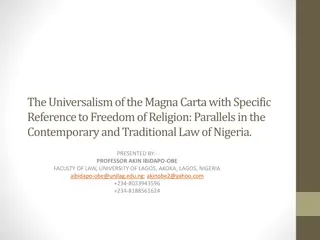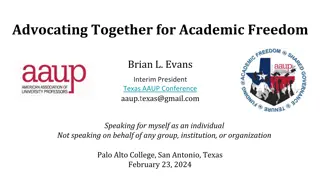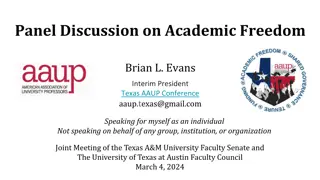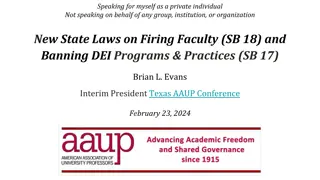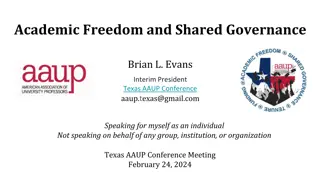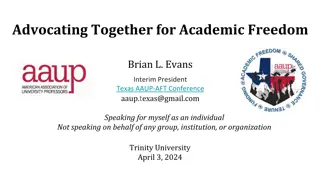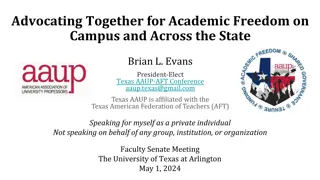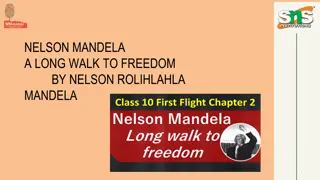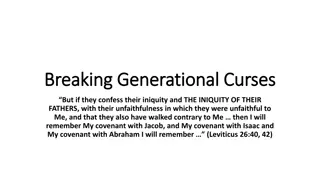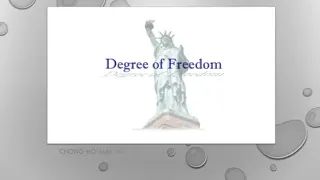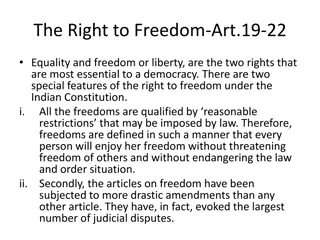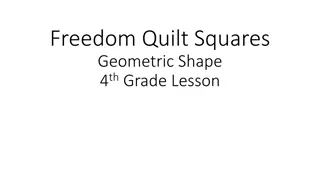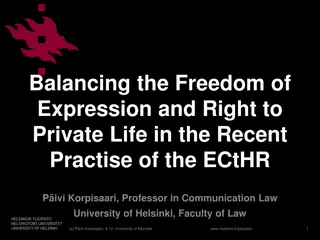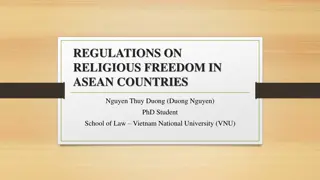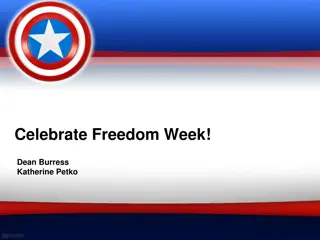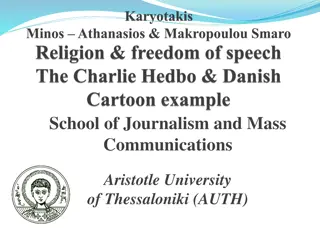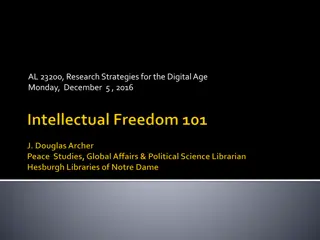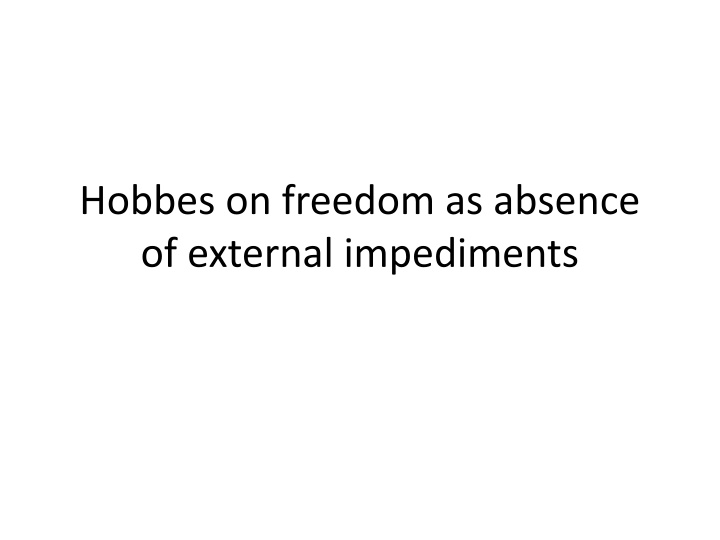
Hobbes's Concept of Freedom as Absence of External Impediments
Explore Thomas Hobbes's perspective on freedom as the absence of external impediments, discussing how liberty is defined as the absence of opposition and how it applies not only to rational beings but also to inanimate objects. Discover the distinction between freedom as the absence of external constraints and freedom of movement, with insightful examples to illustrate the concept in various contexts.
Download Presentation

Please find below an Image/Link to download the presentation.
The content on the website is provided AS IS for your information and personal use only. It may not be sold, licensed, or shared on other websites without obtaining consent from the author. If you encounter any issues during the download, it is possible that the publisher has removed the file from their server.
You are allowed to download the files provided on this website for personal or commercial use, subject to the condition that they are used lawfully. All files are the property of their respective owners.
The content on the website is provided AS IS for your information and personal use only. It may not be sold, licensed, or shared on other websites without obtaining consent from the author.
E N D
Presentation Transcript
Hobbes on freedom as absence of external impediments
1. Hobbess definition of freedom LIBERTY, or FREEDOME, signifieth (properly) the absence of Opposition; (by Opposition, I mean externall Impediments of motion;) and may be applyed no lesse to Irrationall, and Inanimate creatures, than to Rationall. For whatsoever is so tyed, or environed, as it cannot move, but within a certain space, which space is determined by the opposition of some externall body, we say it hath not Liberty to go further. (L XXI, 145)
(1) Freedom = absence of external impediments Any constraint that prevents something/someone from physically doing something (2) Absence of external impediments to motion Freedom of movement (e.g. to flow, move parts of one s body) Things that by their very nature lack motion (e.g. a stone not subjected to sufficient external force/pressure) would lack the power rather than the freedom to move (3) Given (1) and (2) freedom can be enjoyed by things or by beings other than human beings
Water flowing within the banks of a river is: (1) Free to the extent that it can pursue its natural course within the bounds set by the banks of the river If a dam were built, however, the water would be less free than before (2) Not free to the extent that the banks of the river impede its motion If torrential rains swelled the river so that it broke it banks, the water would be freer than before Problem: Someone falling from a cliff would be free under this description of freedom, even if he or she had slipped or been pushed and had not, therefore, chosen to fall
2. Hobbes on human freedom A FREE-MAN, is he, that in those things, which by his strength and wit he is able to do, is not hindered to doe what he has a will to. (L XXI, 146) A human being is free if: (1) He or she has the power to do something (2) He or she is not hindered from acting on the basis of a desire that he or she has
Example: Person A is physically able to get up and walk satisfies requirement (1) Person A has the desire to leave the room in which he or she happens to be and The door to the room is not locked, the way to it is not blocked, no one prevents him or her from leaving the room satisfies requirement (2)
Thus, even a person who throws his or her goods into the sea for fear that the ship he or she is on may sink is free if: (1) This person has the power to throw his or her goods into the sea (2) He or she has the desire to throw them into the sea (3) He or she is not hindered from acting on the basis of this desire and (4) He or she could choose not to throw his or her goods overboard he doth it neverthelesse very willingly, and may refuse to doe it if he will (L XXI, 146) Claim (4) looks problematic, given Hobbes s determinism a cause determines its effect, and every event is determined by its cause
3. Hobbess deterministic view of human agency Two sorts of motion: (1) Physiological processes (e.g. circulation of the blood, beating of the pulse, breathing) (2) Voluntary motion (e.g. speaking, moving one s limbs) Obviously, we have no control over (1), but how about (2)? For Hobbes, (2) can result from deliberation Deliberation leads to consideration of the possible consequences of doing something and can thereby modify our desires (cf. L XI, 44)
Good consequences associated with desire for something or to do something (appetite) Bad consequences associated with desire to avoid something or not to do something (aversion) Appetite = motion towards something Aversion = motion away from something During the act of deliberating wee retain the liberty of doing, or omitting, according to our own Appetite, or Aversion (L XI, 44) Thus, the person, who decides to throw his or her goods overboard through fear that the ship will otherwise sink, is free to perform or not to perform this act only while deliberating whether to do one thing opposed to another thing
What determines what he or she in fact does is the final passion (appetite or aversion) resulting from the process of deliberation: In Deliberation, the last Appetite, or Aversion, immediately adhaering to the action, or to the omission thereof, is that wee call the WILL; the Act, (not the faculty,) of Willing. And Beasts that have Deliberation, must necessarily also have Will. (L XI, 44) Will therefore is the last Appetite in Deliberating. (L XI, 45) Thus the strongest passion causally determines human action in the end
Example: Take two passions: greed and the desire for self-preservation (fear of death) A person driven by greed considers stealing another person s goods Deliberation, however, makes clear the possible evil consequences of doing so (death by hanging) In the end, fear of death (cause) proves to be the stronger desire Therefore, this person does not attempt to steal another person s goods (effect) Now deliberation is simply weighing up the advantages and disadvantages of the action we are addressing (as on a pair of scales), where the weightier consideration necessarily goes into effect by its own natural inclination. (OC, 152)
Thus, the person who decides to throw his or her goods overboard through fear that the ship will sink was free to perform or not to perform this act only until the strongest passion determined what he or she in fact did He or she was free while deliberating during the process of deliberation only in so far as he or she had not been caused to act in one way rather than another (at this point, it was still possible that he or she would either throw or not throw the goods overboard) Even a man who hands over his wallet to a mugger holding a gun to his head would be doing so voluntarily, because he desires to avoid being shot Thus, acting voluntarily for Hobbes means acting on the basis of a desire that one has (as opposed to being determined to act purely by external force or pressure)
4. Hobbess compatibilism Liberty, and Necessity are consistent; as in the water, that hath not only liberty, but a necessity of descending by the Channel; so likewise in the Actions which men voluntarily doe: which, because they proceed from their will, proceed from liberty; and yet, because every act of mans will, and every desire, and inclination proceedeth from some cause, and that from another cause, in a continuall chaine, (whose first link is in the hand of God the first of all causes,), they proceed from necessity. (L XXI, 146-7)
(1a) Water is free in so far as it may follow its natural course within the bounds set by the banks of the river (1b) Water is causally determined in that it cannot do anything other than flow in a particular direction given its own nature and certain other conditions (2a) Human beings are free in so far as they are not impeded from doing what they desire to do (2b) Human beings are causally determined by the strongest desire (which is not itself chosen) in any given situation
5. Political implications the Liberty of Subjects If everyone does what he or she desires to do, the result will be deadly conflict between human beings The desire for self-preservation will therefore lead people to subject themselves to a sovereign power and the laws issued by such a power, which are conditions of peaceable coexistence The liberty of subjects consists in freedom from law one is free to do whatever one desires to do so long as the laws do not forbid it:
The Liberty of a Subject, lyeth therefore only in those things, which in regulating their actions, the Soveraign hath praetermitted [omitted to do or to mention, DJ]: such as is the Liberty to buy, and sell, and otherwise contract with one another; to choose their own aboad, their own diet, their own trade of life, and institute their children as they themselves think fit; & the like. (L XXI, 148) As for other Lyberties, they depend on the Silence of the Law. In cases where the Sovereign has prescribed no rule, there the Subject hath the Liberty to do, or forbeare, according to his own discretion. (L XXI, 152)
Laws conceived as analogous to external impediments to motion Artificiall Chains (L XXI, 147) How convincing is this analogy? Legal constraints do not make it physically impossible to do something: These Bonds in their own nature but weak, may neverthelesse be made to hold, by the danger, though not by the difficulty of breaking them. (L XXI, 147) Hobbes denies that there is anything more to freedom within a state than this absence of legal constraints
He thereby rejects the idea such political freedoms as determining the laws to which one is subject (self-government) are conditions of being genuinely free Rather, he emphasizes the duty to obey the laws issued by the sovereign (whatever they happen to be) In consenting to renounce one s natural freedom, one becomes the author of whatsoever the sovereign commands, and one is therefore obliged simply to obey For if wee take Liberty in the proper sense, for corporall Liberty; that is to say, freedome from chains, and prison, it were very absurd for men to clamor as they doe, for the Liberty they so manifestly enjoy. (L XXI, 147)
Couldnt even a slave be free in this sense? If freedom just is the absence of external impediments to motion, a slave whose movements are not completely restricted would to some extent be free: [A]ll slaves and subjects are free who are not in bonds or in prison. (OC, 111) Hobbes s citizens enjoy more honour and more luxuries than do slaves, but they do not necessarily possess more freedom But wouldn t the citizen s possession of more rights (e.g. rights to property) mean having more freedom?
Liberty freedom from legal constraint - contrasted with obligations that act as constraints Limits to obligation to obey the sovereign - freedom from obligation entails right to do (or not to do) something Although the sovereign does not commit an injustice in condemning a subject to death for whatever reason, the condemned subject is not obliged to obey, but may instead resist attempt to execute him or her Desire for self-preservation is the reason for consenting to renounce one s natural freedom in the first place If this desire is not satisfied, the grounds of obligation fall away
By the same reasoning, people who are free to resist the sovereign also include: Someone whom the sovereign has commanded to kill or maim himself, not resist those attacking him, not to eat, drink, take medicine etc. (L XXI, 151) Someone who has committed a crime is not obliged to confess to it (L XXI, 151) A group of people who have (unjustly) resisted the sovereign and risk being executed if they are caught, unless they are offered a pardon (L XXI, 152) More generally, no one is obliged to obey the sovereign once the latter is no longer able to protect him or her (L XXI, 153)
Note that all these rights are negative in kind unlike right to vote, right to work, etc. Aren t certain positive rights associated with citizenship also important conditions of human freedom?



